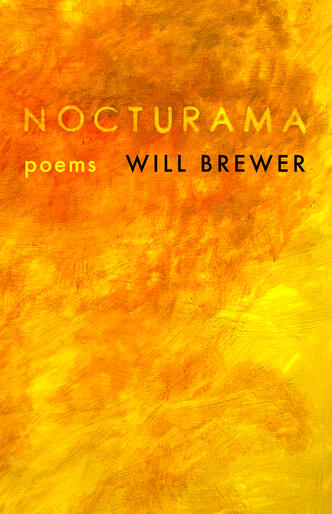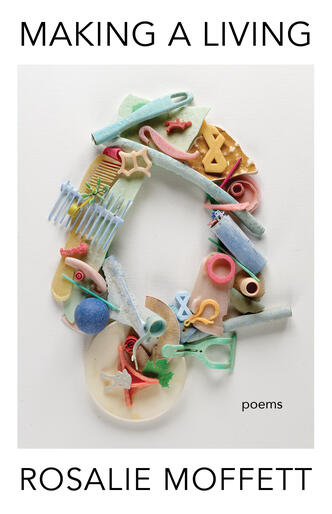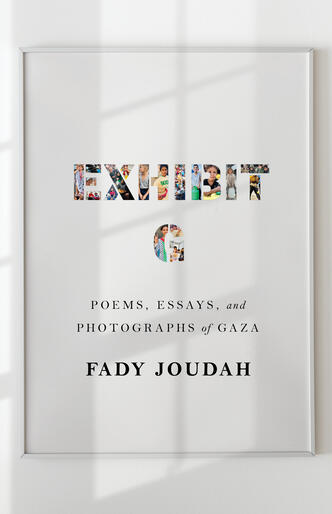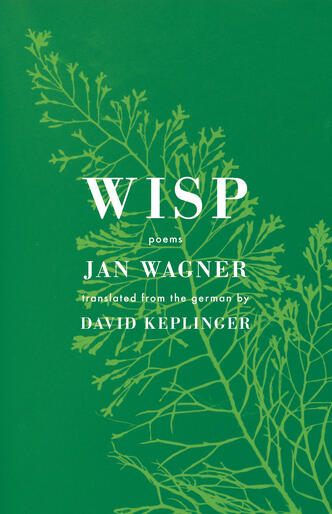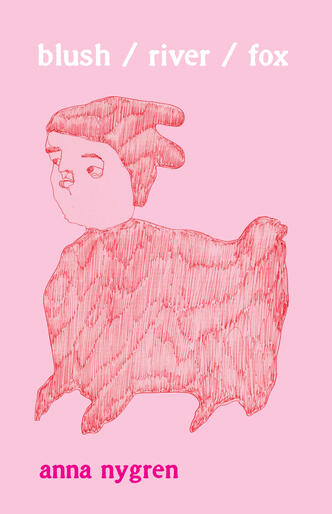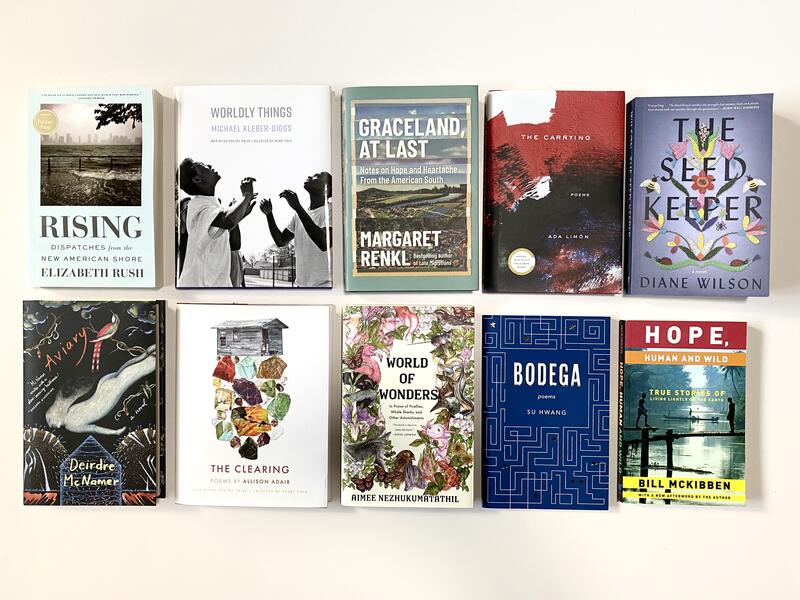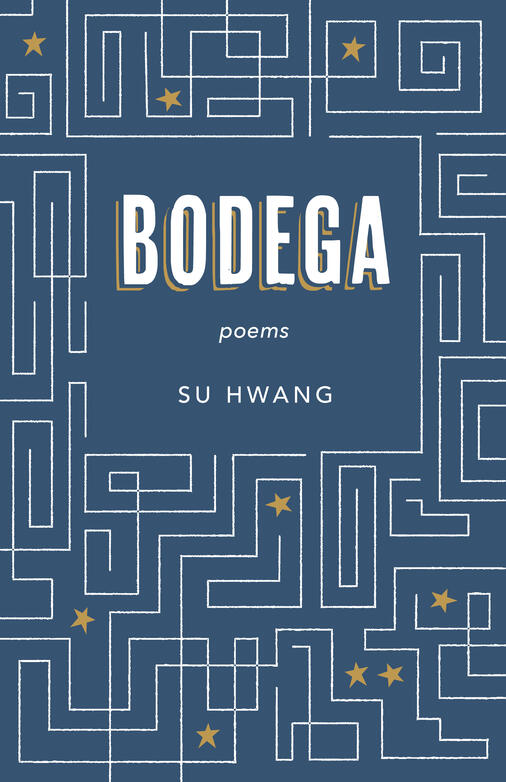
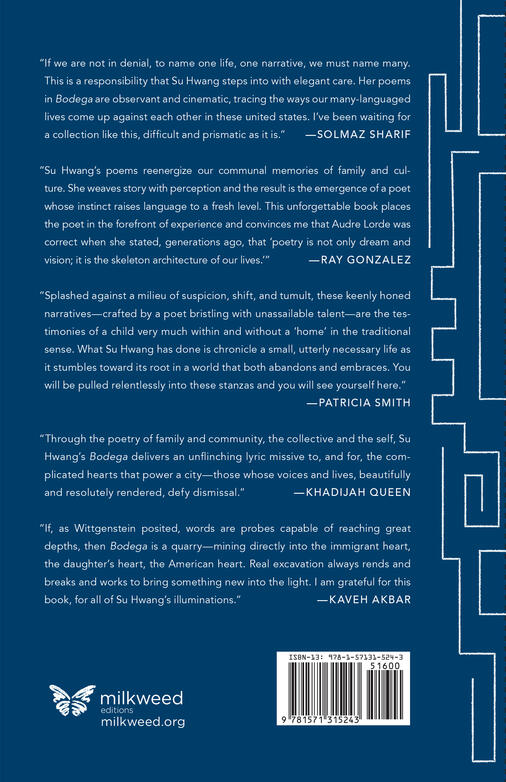
Bodega
“Observant and cinematic … I’ve been waiting for a collection like this.” —SOLMAZ SHARIF
Finalist for the Kate Tufts Discovery Award
Winner of the Minnesota Book Award in Poetry
Against the backdrop of the war on drugs and the 1992 Los Angeles Riots, a Korean girl comes of age in her parents’ bodega in the Queensbridge projects, offering a singular perspective on our nation of immigrants and the tensions pulsing in the margins where they live and work.
In Su Hwang’s rich lyrical and narrative poetics, the bodega and its surrounding neighborhoods are cast not as mere setting, but as an ecosystem of human interactions where a dollar passed from one stranger to another is an act of peaceful revolution, and desperate acts of violence are “the price / of doing business in the projects where we / were trapped inside human cages—binding us / in a strange circus where atoms of haves / and have-nots always forcefully collide.” These poems also reveal stark contrasts in the domestic lives of immigrants, as the speaker’s own family must navigate the many personal, cultural, and generational chasms that arise from having to assume a hyphenated identity—lending a voice to the traumatic toll invisibility, assimilation, and sacrifice take on so many pursuing the American Dream.
“We each suffer alone in / tandem,” Hwang declares, but in Bodega, she has written an antidote to this solitary hurt—an incisive poetic debut that acknowledges and gives shape to anguish as much as it cherishes human life, suggesting frameworks for how we might collectively move forward with awareness and compassion.




